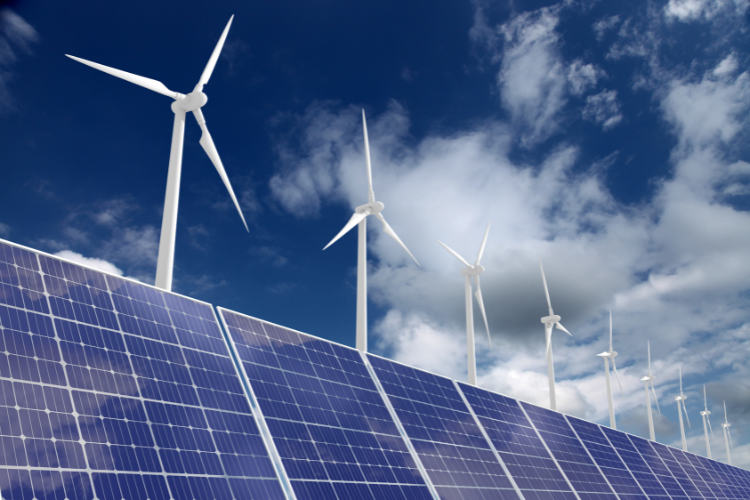
It's no secret that renewable energy use is on the rise among businesses. In 2018, renewables made up a record-breaking 17.5% of global electricity generation, with solar PV accounting for 7%, wind 3.6%, hydro 2.3% and bioenergy (biomass, biogas and waste-to-energy) 3.4%.
This is an increase of 1.5 percentage points from 2017, and 50% since 2010. Not only that, but renewables are now the cheapest form of new electricity generation in two thirds of the world. Given these figures, it's no wonder that global investment in renewables was up 19% last year to $272.9 billion (USD) . With costs falling and awareness rising among both businesses and the general public in the UK, it's fair to ask: could renewables eventually rule the world?
The Case For Renewables
There are several reasons why renewables could one day dominate the world's energy mix. Firstly, there's an increasing awareness of the need to transition to cleaner forms of energy to combat climate change. The Paris Agreement, which was signed by 196 countries in 2015, committed signatories to transition to carbon-neutral economies by 2050 at the latest in order to limit global temperature rise to 2°C above pre-industrial levels – something the UK government remains fully committed to. In order to meet this ambitious and far-reaching target, it's estimated that renewable energy will need to provide 80% of the world's electricity by 2050.
This is a big ask. However, there's a growing body of evidence that suggests transitioning to renewable energy makes economic sense, hastening the move among many businesses that may otherwise have been resistant. A report from Bloomberg New Energy Finance found that the cost of generating electricity from new solar and wind farms was cheaper than coal or gas in 47 out of 55 nations surveyed. And those costs are only going to continue to fall; by 2030, solar and onshore wind will be respectively 50% and 45% cheaper than they are today.
Finally, there's an increasing level of political support for renewables throughout the UK and globally. In June 2017, China (not always known for its sustainability credentials) announced that it would invest $360 billion (USD) in renewable energy by 2020, while the European Union has set a target for 32% of its electricity to come from renewable sources by 2030.
The Case Against Renewables
However, there are also a few factors working against renewable energy becoming the dominant force in the world's energy matrix. Firstly, nuclear power currently provides around 11% of the world's electricity and is classified as a low-carbon technology. While investment in nuclear has slowed in recent years, advancements in technology mean that nuclear could play a role in helping countries meet their carbon targets, supplanting any widespread move towards ‘pure’ renewable energy from air, ground, and sea.
Secondly, natural gas—which emits 50% less CO2 than coal when burned in power stations —is also playing an important role in transitioning away from more polluting forms of energy, despite the chaos and fluctuations in wholesale prices instigated by the Ukraine crisis. In fact, natural gas contributed more than any other fuel to reducing US CO2 emissions between 2005 and 2016, thanks largely to the shale gas boom. It is yet to be seen whether the events of 2022 will do anything to curb or reverse this trend back in the direction of renewables over the next few years.
Sustainability Meets Good Economic Sense
So will renewables eventually rule the world? It's hard to say for sure. What we do know is that they are playing an increasingly important role in meeting our energy needs. In the United Kingdom, renewable energy is rapidly taking over the ‘micro-power’ sector, with a growing number of businesses and homeowners investing in heat pumps, solar panels, and wind turbines to provide some or all of their power requirements.
In particular, businesses are ‘going solar’ at an unprecedented rate, and for good reason. One of the most appealing aspects of solar for businesses is the potential to save money on lighting and electricity costs. Solar panels allow you to generate your own electricity, which can reduce or eliminate your dependence on the grid. This can lead to significant savings on your business energy bills – sometimes by as much as 50%.
To find out more about renewable power and how your organisation could stand to benefit, please call one of the electrical engineering specialists at Lowe & Oliver on +441865730881.
Image Source: Canva




